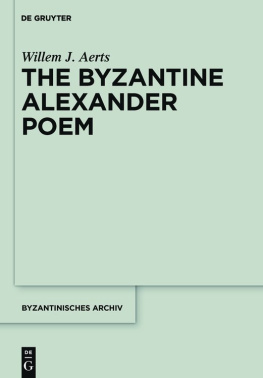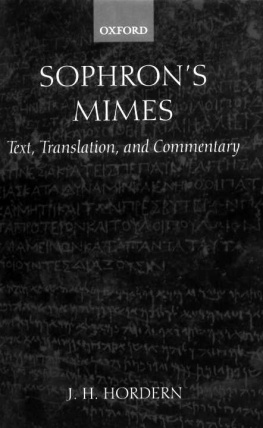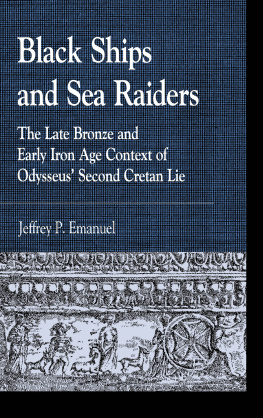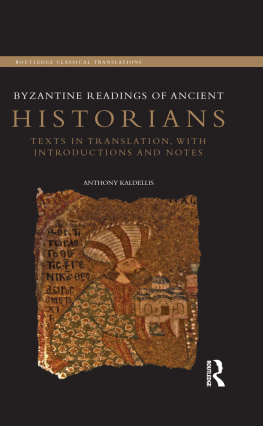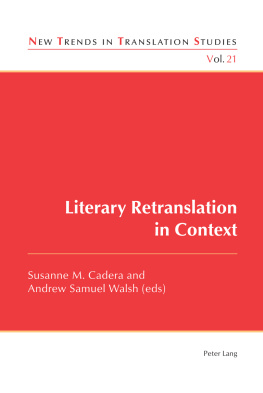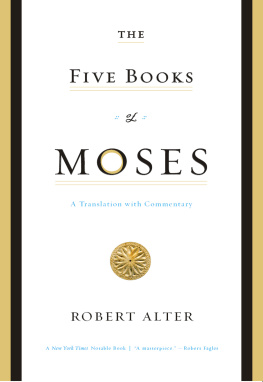A CRETAN HEALERS HANDBOOK
IN THE BYZANTINE TRADITION
In 1930 the Cretan healer, Nikolaos Konstantinos Theodorakis of Meronas, re-copied a notebook containing medical lore passed down through his family over generations. The present volume offers an edition of this notebook together with an English translation, the first of its kind. It belongs to the genre of iatrosophia, practical handbooks dating mainly to the 17th to 19th centuries which compiled healing wisdom, along with snippets of agricultural, meteorological and veterinary advice, and admixtures of religion, astrology and magic. Both fascinating and of critical importance, iatrosophia allow glimpses of classical and Byzantine medical sources and illustrate the vitality and resilience of Greek traditional medical and botanical knowledge.
From years spent exploring local healing customs in Cretes Amari region, Patricia Clark is able to present Theodorakis iatrosophion against a rich historical, geographical and social background. Introductory essays and explanatory notes to the translation give context to the iatrosophion and provide the specialized information necessary for a good understanding of the text. The abundant materia medica of the notebook is treated in a substantial appendix. Each animal, mineral, plant or product is provided with an overview of its various names through the millennia. Such entries are not only a key to understanding the Greek medical legacy, but also a vivid illustration of its usage from antiquity to the present day.
,
s
.
[Be quiet, grumbler, for the world hasnt come to an end,
and sufferings are healed with the plants of the earth.]
A Matinada in the Cretan dialect from Ioannis Neonakis, Meronas,
May 30, 1998.
A Cretan Healers Handbook
in the Byzantine Tradition
Text, Translation and Commentary
PATRICIA ANN CLARK
University of Victoria, Canada
ASHGATE
Patricia Ann Clark 2011
All rights reserved. No part of this publication may be reproduced, stored in a retrieval system or transmitted in any form or by any means, electronic, mechanical, photocopying, recording or otherwise without the prior permission of the publisher.
Patricia Ann Clark has asserted her right under the Copyright, Designs and Patents Act, 1988, to be identified as the author of this work.
Published by
Ashgate Publishing Limited
Wey Court East
Union Road
Farnham
Surrey, GU9 7PT
England
Ashgate Publishing Company
Suite 420
101 Cherry Street
Burlington
VT 05401-4405
USA
www.ashgate.com
British Library Cataloguing in Publication Data
Clark, Patricia A.
A Cretan healers handbook in the Byzantine tradition : text, translation and commentary. (Medicine in the medieval Mediterranean)
1. Traditional medicineGreeceCrete. 2. Theodorakis, Nikolaos Konstantinos. I. Title II. Series III. Theodorakis, Nikolaos Konstantinos.
615.88094959dc22
Library of Congress Cataloging-in-Publication Data
Clark, Patricia Ann.
A Cretan healers handbook in the Byzantine tradition : text, translation, and commentary / Patricia Ann Clark.
p. cm. (Medicine in the medieval Mediterranean)
Includes bibliographical references and index.
ISBN 978-0-7546-6101-6 (hardcover : alk. paper) ISBN 978-1-4094-3571-6 (ebook)
1. Medicine, Greek and Roman. 2. Medical writingGreeceCreteEarly works to 1800. 3. MedicineGreeceCreteHistoryTo 1500. I. Title.
R138.C53 2011
610.938dc23
2011015341
ISBN 9780754661016 (hbk)
ISBN 9781409435716 (ebk)
ISBN 9781409482567 (ebk-ePUB)
Contents
List of Illustrations
List of Abbreviations
Primary sources are abbreviated according to the conventions of the Oxford Classical Dictionary. Key secondary references are abbreviated as follows:
Fr. D = Evangelia Frangaki, 1978.. : no publisher.
Fr. S = Evangelia Frangaki, 1969.. : no publisher.
Genn. = Panagiotis Georgiou Gennadios, 1914.. : . Reprint: : no publisher 1997.
Held. = Theodor von Heldreich, 1925.. : ..
Hippocrates = Potter, Paul, 1988. Index of Food and Drugs and Greek Names of Foods and Drugs Included in Index. In Paul Potter (ed.), Hippocrates, with an English translation, vol. 6. Loeb Classical Library 473. Cambridge, MA: Harvard University Press, and London: William Heinemann. 34461.
Hist. Lex. Acad. Ath. = : . Anthimos Papadopoulos and Demetrios J. Georgakis (eds), 1933. : .
Hsch. Lex. = (1) Hesychius. Lexicon (). Kurt Latte (ed.), 195366. Hesychii Alexandrini lexicon. 2 vols. Copenhagen: Munksgaard. (2) Hesychius. Lexicon. Mauricius Schmidt (ed.), 1867. Hesychii Alexandrini lexicon. 5 vols. Jenae: Sumptibus Hermanii Dufftii (Libreria Maukiana). Reprint: Amsterdam: Hakkert 1965.
Kav. = Demetrios S. Kavvadas 1956.. 9 vols. : no publisher.
K. = Karl Gottlob Khn (ed.), 182133. Claudii Galeni opera omnia. (20 vols in 22) Leipzig: K. Knobloch. Reprint. Hildesheim: Olms, 1964 and 2001.
Lk. = Bernhard Langkavel, 1866. Botanik der spaeteren Griechen vom dritten bis dreizehnten Jahrhunterte. Berlin: F. Berggold.
LSJ = Henry George Liddell, Robert Scott and Sir Henry Stuart Jones, 1985. Greek-English Lexicon. Oxford: Clarendon Press.
OCL.D. = Simon Hornblower and Antony Spawforth (eds), 1996. The Oxford Classical Dictionary. Oxford: Oxford University Press.
ODBYZ. = Alexander P. Kazhdan et al., 1991. The Oxford Dictionary of Byzantium. New York and Oxford: Oxford University Press.
OED = John Bradbury Sykes, 1982. The Concise Oxford Dictionary. Oxford: Clarendon Press.
OGD = Julian T. Pring (ed.), 2000 Oxford Greek Dictionary. Oxford: Oxford University Press.
Papad. = 19 . Nikolaos E. Papadogiannakis (ed.), 2001. 19 . , , . : .
Rig. = Gerasimos Rigatos 2005.. : .
TLG = Thesaurus Linguae Graecae 1985. Online comprehensive digital library of Greek literature in which terms, stems or phrases can be searched. University of California (Irvine). URL: http://www.tlg.uci.edu/ .
Foreword
Ancient compendia of formulas for medicines are unique witnesses to the daily life of practitioners: they report data collected during medical consultations, the preparations administered to patients, occasionally their therapeutic successes and failures, and at times may contain the traditional wisdom of Elders about collecting plants in the field. Greek iatrosophia, that is books of therapeutics which are usually and questionably assumed to date back through the Early Modern to the Ottoman period of the Greek world, are no exceptions.
In spite of their interest, iatrosophia have not, thus far, been much studied. They have been viewed rather as nothing more than chains of formulas for medicines, supposedly composed by the Founding Fathers of Greek classical medicine and Christian anthropology, Hippocrates, Galen, Dioscorides and Meletius. Accordingly, the genre of the iatrosophion has not been popular among scholars, be they historians of medicine and science, Byzantinists, Ottomanists or cultural historians. This dismissive attitude is founded on reservations such as these: the obscurity of the genre, the often-stated low quality of the books, their rapid writing, the inaccuracy of their orthography, the mixed nature of their contents and in addition their poor state of preservation. All these factors led the Austrian Byzantinist Herbert Hunger to remark, in his survey of Mid- and Late-Byzantine medical literature, that nobody will spend months of work in reading poorly written manuscripts to eventually have in hand one more collection of prescriptions recovered from the jungle of the
Next page

